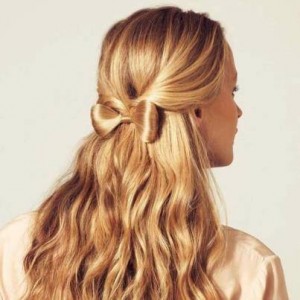
What you eat is what you are.
We know all to well how important healthy diet is.
Consuming healthy, nutrient dense foods have a direct positive impact not only on the way we feel, but also on our appearance.
Unless we are dealing with issues of heredity, certain medications or an underlying medical condition, the health of our skin, nails and hair is a reflection of our nutritional status.
All those who had to experience excessive hair loss at some point in their life understand how difficult it can be to mitigate this problem. Most of us spend significant amount of money on hair care products throughout our lifetime, and while these are important, we fail to pay enough attention caring for our hair from within.
Hair loss can very often be resolved by making sure we get the necessary amount of vitamins and minerals, especially of those that serve as fuel to hair growth. As hair loss is often the pure sign of vitamin deficiency, addressing this underlying issue will be more likely to generate results that are longer lasting and more visible.
Vitamin B-complex
Vitamin B is especially important for the health and growth of your hair. Hair loss has been associated with deficiency in B vitamins, especially B2, B3, B5, B6, B7, B9 and B12. Generally, people believe that it is enough to take one or two members of the vitamin B-complex in order to combat vitamin B-deficiency.
This is not true however, as these vitamins work in synergy with one another, and are most effective when taken together.
Vitamin B2 (riboflavin)
is needed by the body to use oxygen, it also metabolizes carbohydrates, amino acids and fatty acids. Vitamin B2 activates vitamin B6 and helps produce vitamin B3, which is very important to hair growth. Blood circulation to the scalp is promoted by Vitamin B3 (niacin).
Vitamin B5 (pantothenic acid)
plays a key role in preventing hair loss and promotes hair regrowth as it helps convert food into energy.
Vitamin B6 (pyridoxine)
is used to produce melanin, determining hair color and it helps prevent hair loss. There is clinical evidence demonstrating the ability of vitamin B6 to stimulate hair growth. It plays a major role in red blood cell metabolism and cellular growth, producing hemoglobin, a compound within red blood cells that carries oxygen to body tissue.
Vitamin B7, also known as Biotin or Vitamin H,
is one of the most well-known in the complex for its ability to aid in hair growth. Biotin occurs naturally in our bodies protecting our hair against becoming dry, thickening cuticles and increasing hair elasticity.
Vitamin B9 (folic acid)
helps maintain hemoglobin levels in the blood. Vitamin B9 along with vitamin B12 (cobalamin) helps the transport of oxygen to body tissues, including hair follicles which require enough oxygen to sustain hair growth. Many who suffer from hair loss are found deficient in Vitamin B12.
Vitamin E
Another important contributor to hair health is vitamin E. Vitamin E improves circulation to all parts of the body, increasing oxygen uptake, which improves circulation to the scalp. It contains valuable antioxidants that help keep your immune system strong. As hair health is a reflection of immune system health, it is believed that vitamin E stimulates hair growth by enhancing immune function.
Amino Acids
L-Cysteine and L-Methionine are the sulfur amino acids that form “keratin,” which is the protein structure of hair. Studies have shown that supplementing with l-cysteine may prevent hair loss, as well as increase the diameter of the hair shaft. These amino acids have been found to increase hair growth by as much as 100 percent.


Leave a Reply
You must be logged in to post a comment.